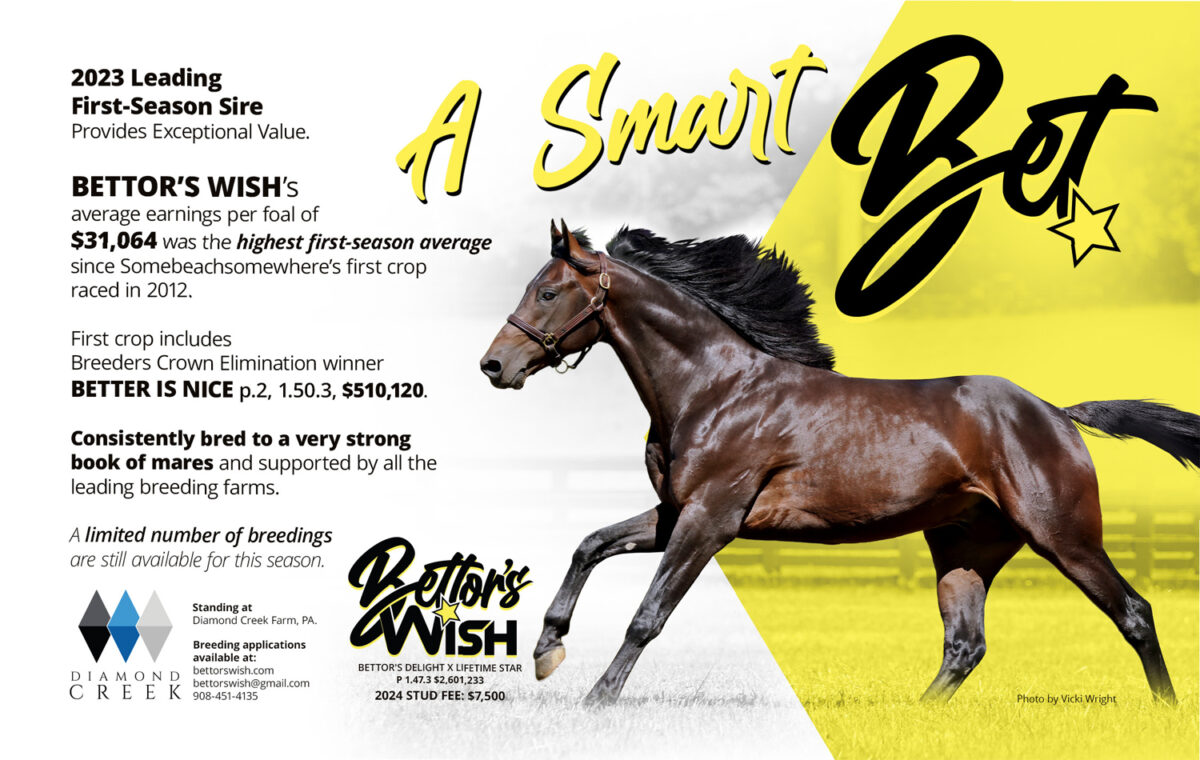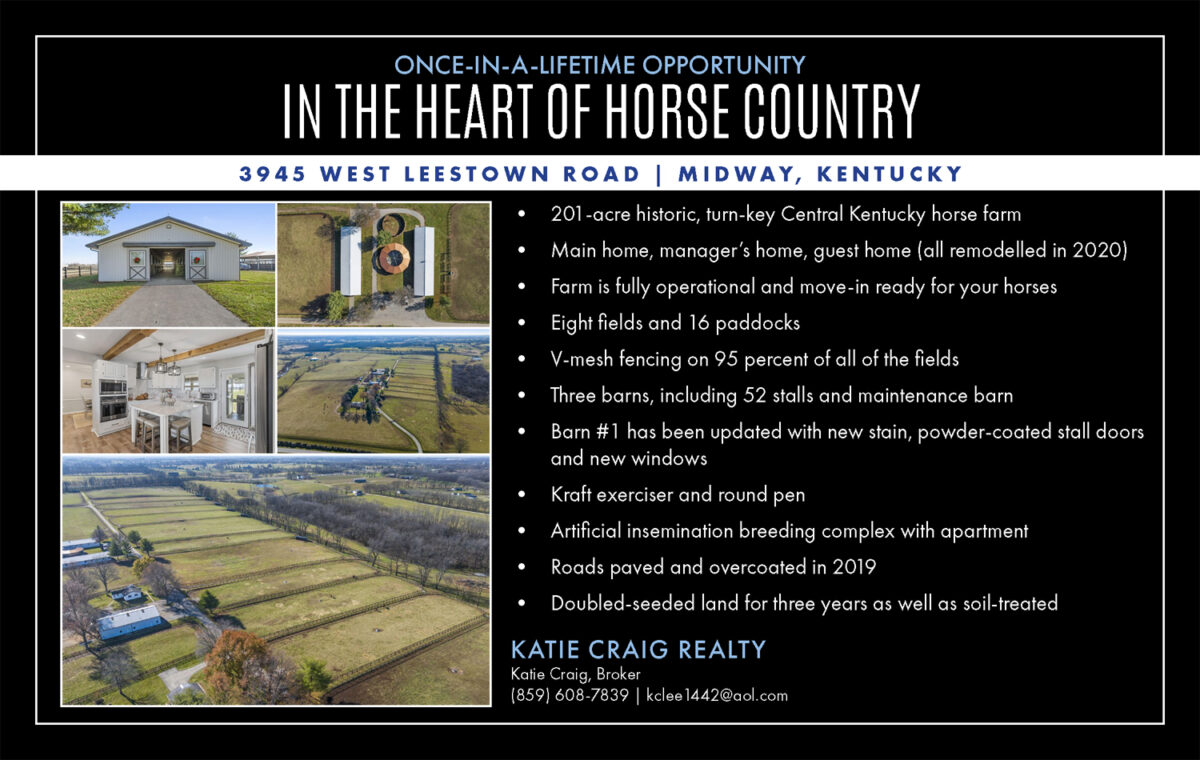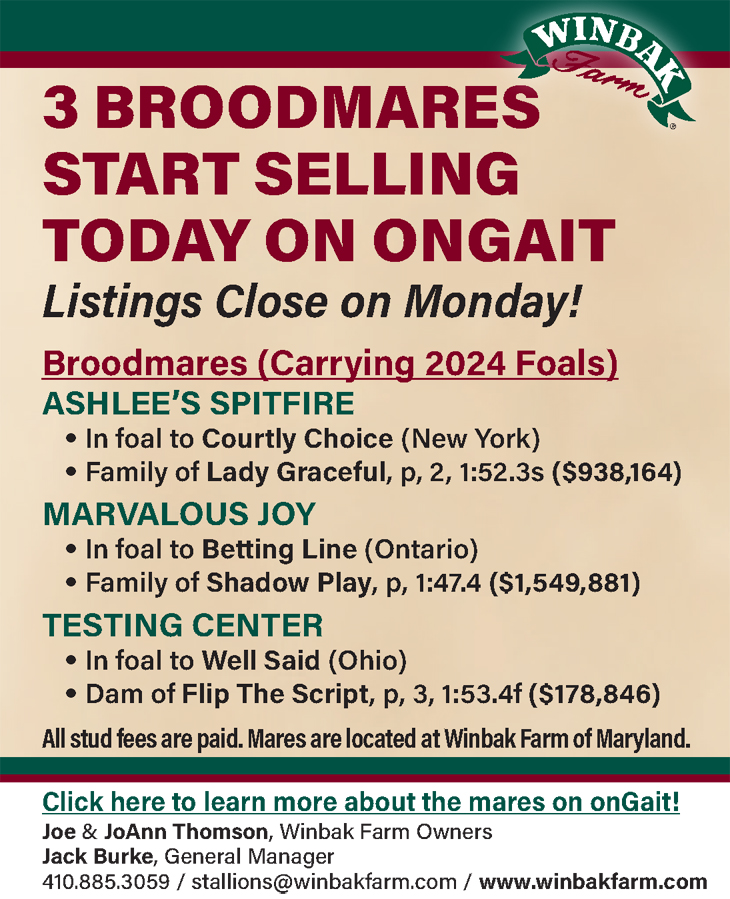

Harvesting handicappers
by Trey Nosrac
I tugged the ticket from the Turnpike toll machine and watched the mechanical arm rise. My passenger said, “Trey, you might be missing the mark with your schemes to harvest new owners. The future of your sport depends on gamblers. Without a steady stream of gambling money, the fate of racing will be an expensive hobby.”
I nodded. “An astute observation. There will always be horses to race and owners to want to compete against each other. The weird thing is, while I have had people ask me about owning young horses, in twenty years, I never had a single person ask me to teach them how to read a program or handicap a race.”
“Never?”
“Never,” I replied.
“Perhaps your gambling reputation preceded you.”
“True again, asking me for handicapping advice would be like going to a swami for stock market advice.”
“Suppose a novice DID ask you for suggestions on wagering harness races? What would you say?”
“Well, first I would tell them, they could not make a dime wagering on trotters and pacers. I would forbid them from entering the world of handicapping harness races.”
“Plausible deniability?” he asked.
“Yes, and reverse psychology. You see, for some of us, telling us we cannot do something is waving a red cape to a bull. Suggesting to me that I cannot do something will ensure a “hold my beer” reaction. I will try enthusiastically and repeatedly to prove you wrong.”
“Suppose the novice persists and they still want to learn how to gamble on horse races. What do you tell them?”
“I’d tell them to do it privately. A cool aspect of living in 2021 is that you can learn anything without looking or sounding like a fool in public. With a laptop or cell phone, you could build a ukulele and then learn how to play it on your living room couch. We can all learn stuff without heckling from a live audience. If you google – how to gamble on harness racing or how to read a harness racing program, multiple pages and videos will pop onto your screen.”
He added, “Plus, potential gamblers can place bets using their keyboard.”
“Exactly. Privacy is an important concept. Present company excepted, appearing stupid or asking for guidance in public annoys people.”
“Any other words of wisdom?”
“Yes, a few ideas could be classified as compartmentalization. I would tell a novice to choose a single racetrack during the early days of picking equine trotters and pacers, perhaps choose a track like Northville Downs in Michigan. Get familiar with the horses and comfortable with the process for a few weeks.”
“Reasonable.”
“Then I’d suggest they begin with basic win, place, or show wagers. They should probably bet show wagers, as not to become discouraged or destitute. And AFTER each race, the newbie should block out a few minutes to look back at the program and see what they might have missed before the race.”
He shuddered, “This is the most sense you have displayed since, well, ever.”
“I know, I’m on a roll. The neophyte should wager small amounts, no sense being in a hurry to go broke. Plus, I believe in setting goals. I usually set the bar low so I can sort of step over it. For example, a novice gambler to horse racing could deposit fifty dollars in their wagering account on Monday and attempt to make it last until Friday. Wagering two-dollar show tickets would make this doable. The onsite gambling sites keep a running total of deposits and wagers, so all the math and record-keeping is taken care of for a player.”
He chimed in, “I see. So if the new player follows your advice and has twenty dollars remaining on Friday, this will be classified as a success instead of what it is, a thirty-dollar loss.”
I nodded. “Welcome to my world of wagering.”
“Trey, this is excellent. One might call your suggested method, modest, concrete, measurable, building blocks under the cloak of anonymity.”
With an eye-roll, I said, “Or, if you are not a pretentious walking dictionary, one could say it would help ease newbies into betting on horses.”















